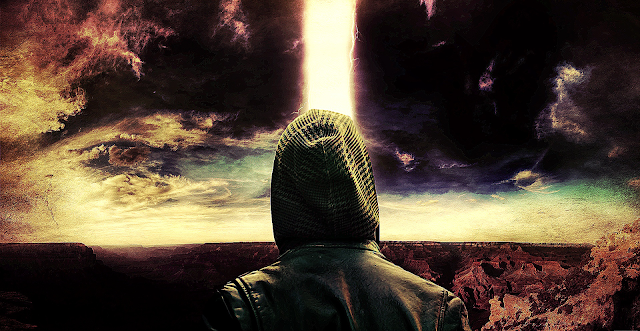Illusion of Naivety, Fire of the Ideal
“I am an absurd idealist. But I believe that all that must come true. For, unless it comes true, the world will be laid desolate. And I believe that it can come true. I believe that, by the grace of God, men will awake presently and be men again, and color and laughter and splendid living will return to a grey civilization. But that will only come true because a few men will believe in it, and fight for it, and fight in its name against everything that sneers and snarls at that ideal.”
― Leslie Charteris, The Last Hero
What is idealism? This question is often met with condescension if not outright dismissal. We renounce this belief as being nothing more than a childish fantasy, one that is of no use in the oh-so-pragmatic “modern age”. This may be true if taken at face value. Sure, there’s a bit of daydreaming here and there, but idealism can and should extend beyond the world of dreams.
Idealism is usually associated with Romanticism, although this isn’t always the case. One could say that Blake was an idealist given his advocacy of social change in an era where such views were deemed impractical or blasphemous. With that said, his approach may not have captured the entirety of what idealism really is. True, it may be a symbol of progressive thought. It could be used as an excuse to avoid the obstacles of reality. Of course, both of these perspectives are valid in different situations. Yet, in having this black-and-white view of idealism, we fail to appreciate its value and the role it plays in our lives.
The power of idealism lies not in its utopian ideals, but in its power to overcome adversity. This is, arguably, the downfall of “realism”, whatever that meant to begin with. Yes, it’s good to have a sense of objectivity. It get things done. It pays the bills, feeds the family, you name it. These are all obligations in becoming an adult. Yet, without a sense of idealism, life amounts to nothing more than an ordinary framework of how life ought to be. Life becomes an existence lacking in morals, purpose, and just the entire spectrum of being in general. When our lives are rid of these ideals, we start to lose the will to strive, and when our deepest values are challenged...we break. Because these values never meant anything. So we tell ourselves.
You can argue all you about how these are just societal constructs, but try and listen to yourself for one second. Listen to your subconscious mind. Listen to the inner voice that has been drowned out by the dogma of “the real world”. People love giving condescending remarks, such as “welcome to the real world buddy”. Alright. So you go out into the real world, make a living, grind your way to the top, retire. But then, as the years go by, you look back on your life and say, “All these years I suffered, and yet I forgot who I was.” Don’t be that old man or woman lying in their deathbed ruminating over lost hopes and dreams with resentment.
I’m not saying the idealism is gonna be a one-way ticket to avoiding the harsh truths of reality. In fact, idealism may bring about more internal turmoil than you could possibly imagine. You’ll have to face the uncomfortable flaws of your psyche. You’ll have to own up to your values in the face of physical and emotional suffering. This isn’t a pleasant path. But it is the only path towards personal growth.
So tell me, will you struggle for your ideals? Or will you deny yourself the full spectrum of human experience?



Comments
Post a Comment